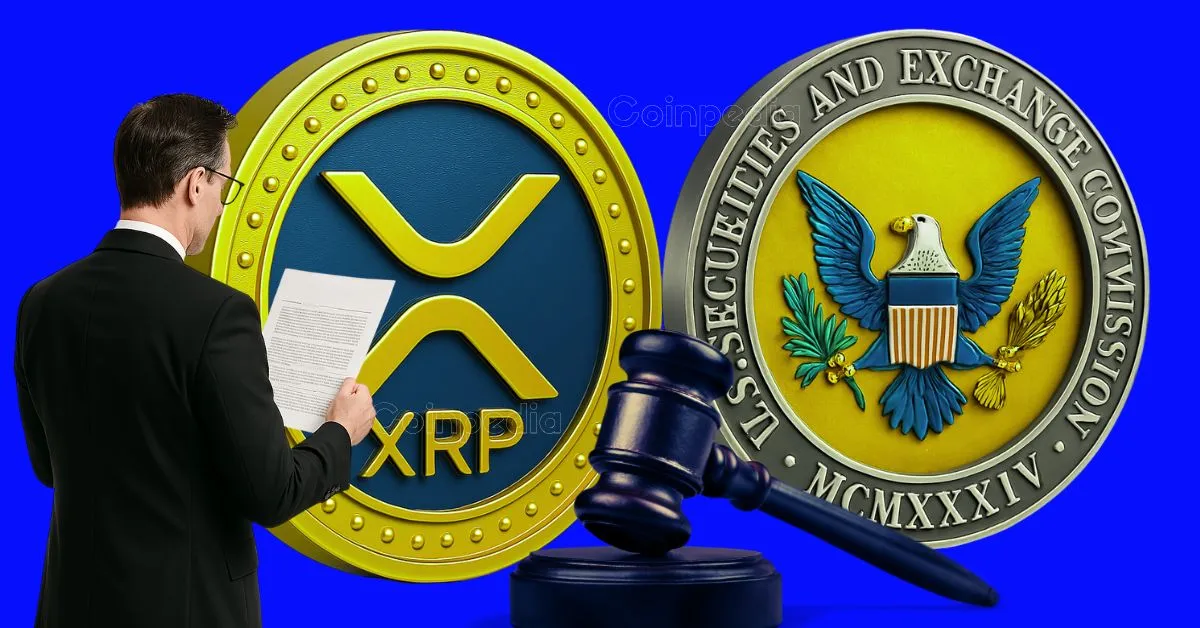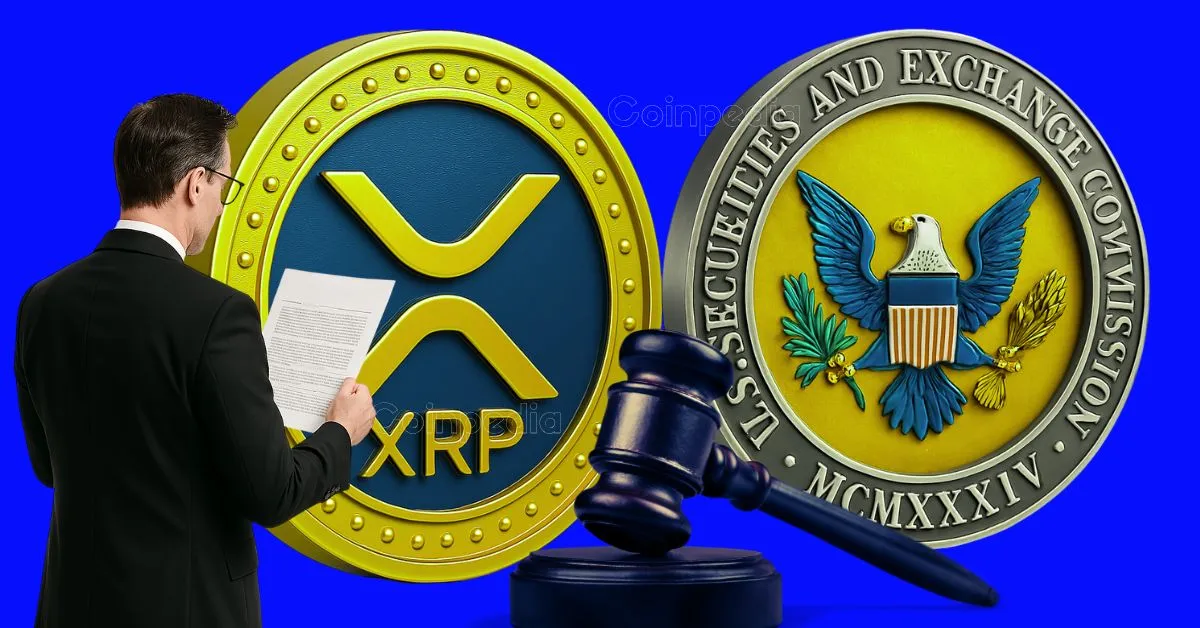The Ripple vs. SEC Lawsuit: A Comprehensive Analysis of the Legal Battle and Its Implications
Introduction: The Legal Battle That Redefined Crypto Regulation
The legal confrontation between Ripple Labs and the U.S. Securities and Exchange Commission (SEC) has become a defining moment in the cryptocurrency industry. What started as a straightforward enforcement action has evolved into a complex legal saga with far-reaching implications for the regulatory landscape of digital assets. The case has not only shaped the future of Ripple’s XRP but has also set a precedent for how other cryptocurrencies might be treated under U.S. securities laws. As the case progresses, the crypto community remains on edge, awaiting a resolution that could either stifle innovation or pave the way for clearer regulatory frameworks.
The Genesis of the Dispute: A Clash of Perspectives
The SEC’s lawsuit against Ripple Labs, filed in December 2020, accused the company of conducting an unregistered securities offering through the sale of XRP, its native cryptocurrency. The SEC alleged that Ripple raised over $1.3 billion through these sales, arguing that XRP met the criteria of an investment contract under the Howey Test. The Howey Test, a legal framework established by the U.S. Supreme Court, determines whether an asset qualifies as a security based on whether investors expect profits primarily from the efforts of others.
Ripple, however, has consistently maintained that XRP is not a security but rather a currency or virtual currency, akin to Bitcoin or Ether. The company argues that XRP has utility independent of Ripple’s activities and that its value is not solely derived from the company’s efforts. This fundamental disagreement over the nature of XRP has been at the heart of the legal battle, with both sides presenting compelling arguments to support their positions.
Key Milestones and Turning Points: A Timeline of Legal Developments
The Ripple vs. SEC lawsuit has been marked by several pivotal moments that have shaped its trajectory:
Initial Filings and Discovery
The early stages of the lawsuit were characterized by extensive discovery, with both sides presenting evidence and arguments. This phase was marked by disputes over document production and access to internal communications, highlighting the complexity of the case. The SEC sought to prove that Ripple’s sales of XRP were securities transactions, while Ripple aimed to demonstrate that XRP was a utility token with legitimate use cases beyond speculative investment.
The Hinman Speech: A Pivotal Moment
A significant turning point in the case emerged with the focus on a 2018 speech by former SEC Director William Hinman. In his speech, Hinman stated that Bitcoin and Ether were not securities, a statement that Ripple argued should apply to XRP as well. The Hinman speech became a focal point in the case, with Ripple contending that the SEC’s own statements indicated that XRP should not be classified as a security. The SEC, however, argued that Hinman’s remarks were personal opinions and not official policy.
Summary Judgment Rulings: A Mixed Verdict
In July 2023, Judge Analisa Torres issued a summary judgment ruling that provided partial victories for both sides. The judge ruled that Ripple’s programmatic sales of XRP on exchanges did not constitute investment contracts, while institutional sales of XRP did. This mixed ruling offered some clarity but left many questions unanswered, creating both celebration and confusion within the crypto community. The ruling suggested that the SEC’s case was not entirely without merit, but it also indicated that not all of Ripple’s activities were deemed to be in violation of securities laws.
The Penalty Phase: A Battle Over Fines
Following the summary judgment, the focus shifted to the remedies phase, where the SEC sought significant penalties against Ripple. The SEC initially requested nearly $2 billion in fines, but a federal judge ultimately fined Ripple nearly $2 billion less than the SEC asked for. This phase highlighted the SEC’s aggressive stance against Ripple, as well as the court’s willingness to temper the penalties sought by the regulatory agency.
Dropped Cross-Appeal: An Unfinished Battle
Despite Ripple dropping its cross-appeal, the case is not officially over. The decision to drop the cross-appeal suggests that Ripple may be seeking a settlement or a more favorable outcome through other legal avenues. The case remains unresolved, leaving the crypto community in a state of uncertainty.
Lingering Questions and Unresolved Issues: The Path Forward
Despite the progress made, several critical issues remain unresolved, contributing to the uncertainty surrounding the case’s timeline:
The Status of XRP: A Central Point of Contention
The legal status of XRP remains a central point of contention. While the summary judgment provided some clarity, the SEC’s continued pursuit of penalties suggests that it still views Ripple’s past conduct as a violation of securities laws. The case has raised questions about whether XRP should be classified as a security, a commodity, or a currency, with implications for its regulatory treatment and market behavior.
Clarity for the Crypto Industry: A Precedent for Digital Assets
The outcome of the Ripple case has broad implications for the entire cryptocurrency industry. A decisive victory for the SEC could lead to increased regulatory scrutiny and enforcement actions against other digital assets, while a win for Ripple could provide a clearer path for crypto companies to operate within the existing legal framework. The case has highlighted the need for regulatory clarity in the crypto space, as companies struggle to navigate the complex and often contradictory legal landscape.
International Implications: A Global Regulatory Impact
The Ripple case has also drawn attention from international regulators and policymakers. The SEC’s actions against Ripple could influence how other countries approach the regulation of digital assets. As the case progresses, international regulators may look to the outcome as a guide for their own regulatory frameworks, potentially leading to a more harmonized approach to crypto regulation globally.
Expert Opinions and Conflicting Timelines: Predictions for Resolution
The timeline for the resolution of the Ripple vs. SEC lawsuit remains a subject of debate among legal experts:
Predictions of a Swift Resolution: The Case for Settlement
Some former SEC lawyers have suggested that a settlement between Ripple and the SEC could be reached relatively soon. Factors such as changes in SEC personnel and a desire to move on from the case could incentivize both sides to negotiate a settlement. A settlement would provide a quicker resolution to the case, allowing both parties to avoid the uncertainties and costs of further litigation.
Potential for Prolonged Litigation: The Case for Delay
Other legal experts, including attorney Jeremy Hogan, have cautioned that the case could drag on for several more years, potentially extending into 2026 or beyond. Factors such as appeals, further discovery, and potential changes in crypto regulations could prolong the litigation. The complexity of the case and the high stakes involved make it unlikely that a swift resolution will be reached, with both sides potentially digging in their heels to achieve their desired outcome.
The Impact on XRP and the Crypto Market: A Volatile Landscape
The Ripple vs. SEC lawsuit has had a significant impact on XRP’s price and market sentiment. The initial announcement of the lawsuit in December 2020 led to a sharp decline in XRP’s value, as exchanges delisted the token and investors grew wary of its legal status.
Price Volatility: A Rollercoaster Ride
Throughout the course of the lawsuit, XRP’s price has experienced periods of significant volatility, often reacting to news and developments in the case. Positive rulings or settlement rumors have typically led to price spikes, while negative developments have triggered declines. This volatility has made XRP a high-risk, high-reward investment, with investors closely monitoring the case for any signs of resolution.
Market Uncertainty: A Wait-and-See Approach
The ongoing uncertainty surrounding XRP’s legal status has made it difficult for investors to assess its long-term value. Many institutional investors have remained on the sidelines, waiting for greater clarity before investing in XRP. This uncertainty has also affected the broader crypto market, as investors and companies alike look to the outcome of the case for guidance on how to navigate the regulatory landscape.
Innovation and Growth: Ripple’s Continued Development
Despite the legal challenges, Ripple has continued to develop its technology and expand its partnerships. The company has focused on using XRP for cross-border payments and has partnered with financial institutions around the world to facilitate faster and cheaper transactions. Ripple’s continued innovation highlights the potential of XRP as a utility token, even as the legal battle rages on.
Potential Endgames: Scenarios and Outcomes
Several potential scenarios could bring the Ripple vs. SEC lawsuit to a close:
Settlement: A Mutually Beneficial Resolution
Ripple and the SEC could reach a settlement agreement that resolves the outstanding issues. A settlement could involve Ripple paying a fine, agreeing to certain restrictions on its activities, and making other concessions. A settlement would provide a quicker resolution to the case, allowing both parties to move forward without the uncertainties and costs of further litigation.
Final Judgment: A Decisive Outcome
The court could issue a final judgment that either supports the SEC’s claims or favors Ripple’s defense. A judgment in favor of the SEC could have significant implications for Ripple and the broader crypto industry, potentially leading to increased regulatory scrutiny and enforcement actions. A win for Ripple, on the other hand, could provide greater regulatory clarity and pave the way for the broader adoption of XRP and other digital assets.
Appeals: A Prolonged Legal Battle
Regardless of the initial outcome, either party could appeal the court’s decision. An appeal could prolong the litigation and further delay a final resolution. The complexity of the case and the high stakes involved make it likely that either party could seek an appeal, potentially extending the legal battle for years to come.
Conclusion: Awaiting the Final Chapter
The Ripple vs. SEC lawsuit has been a long and complex legal battle with far-reaching implications for the cryptocurrency industry. As the case approaches its potential final chapter, the outcome remains uncertain, with various factors and potential scenarios at play. Whether through settlement, final judgment, or further appeals, the resolution of this landmark case will undoubtedly shape the future of crypto regulation and innovation in the years to come. The industry watches with bated breath, awaiting the final verdict that will determine the fate of XRP and set a precedent for digital assets worldwide. The outcome of this case will not only impact Ripple and XRP but will also send ripples through the entire crypto ecosystem, influencing how digital assets are regulated and perceived in the years to come.












